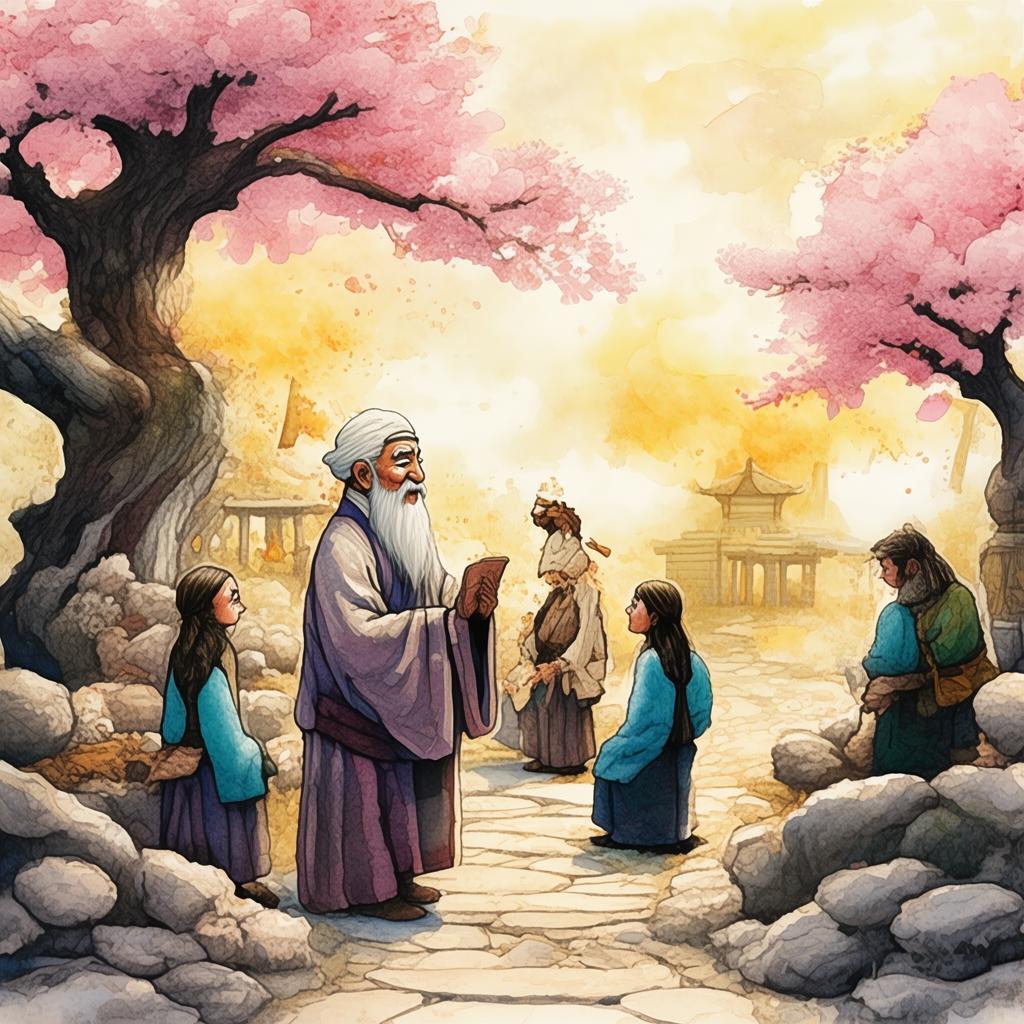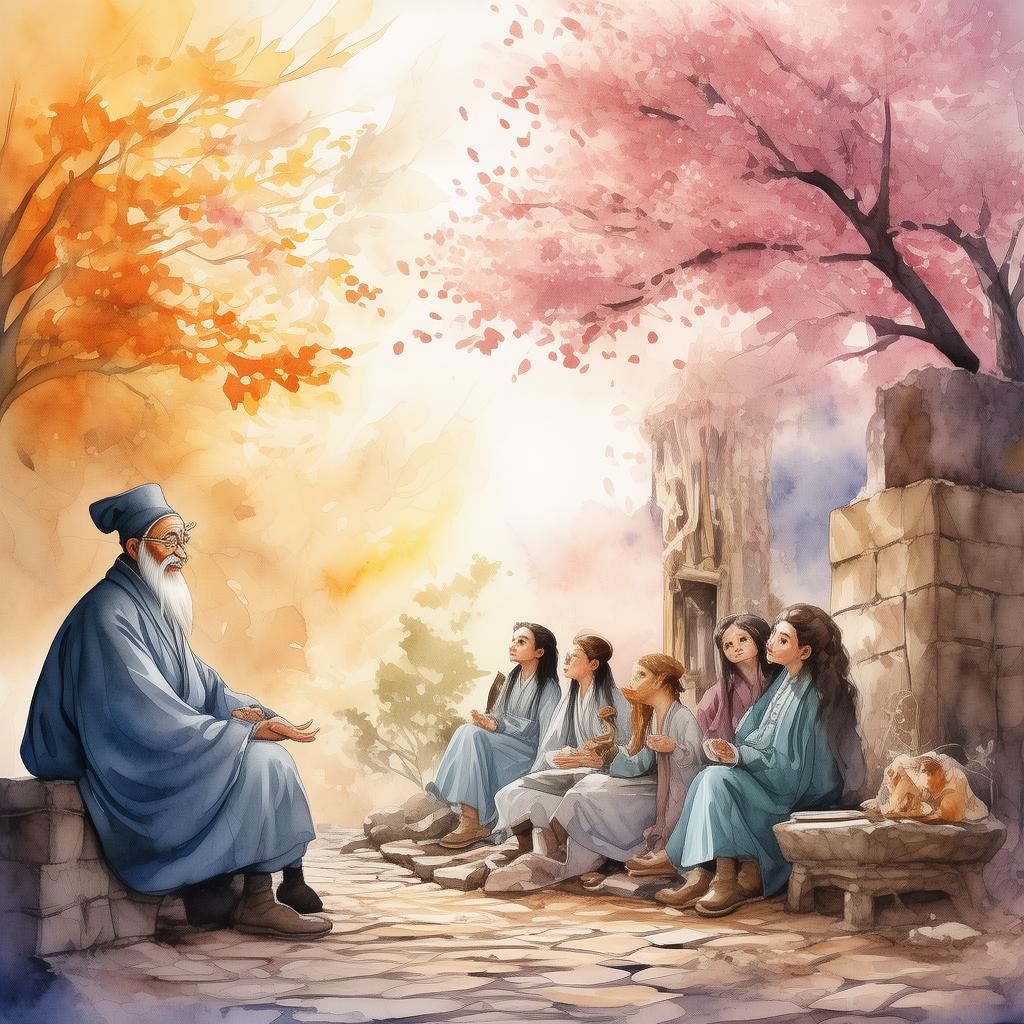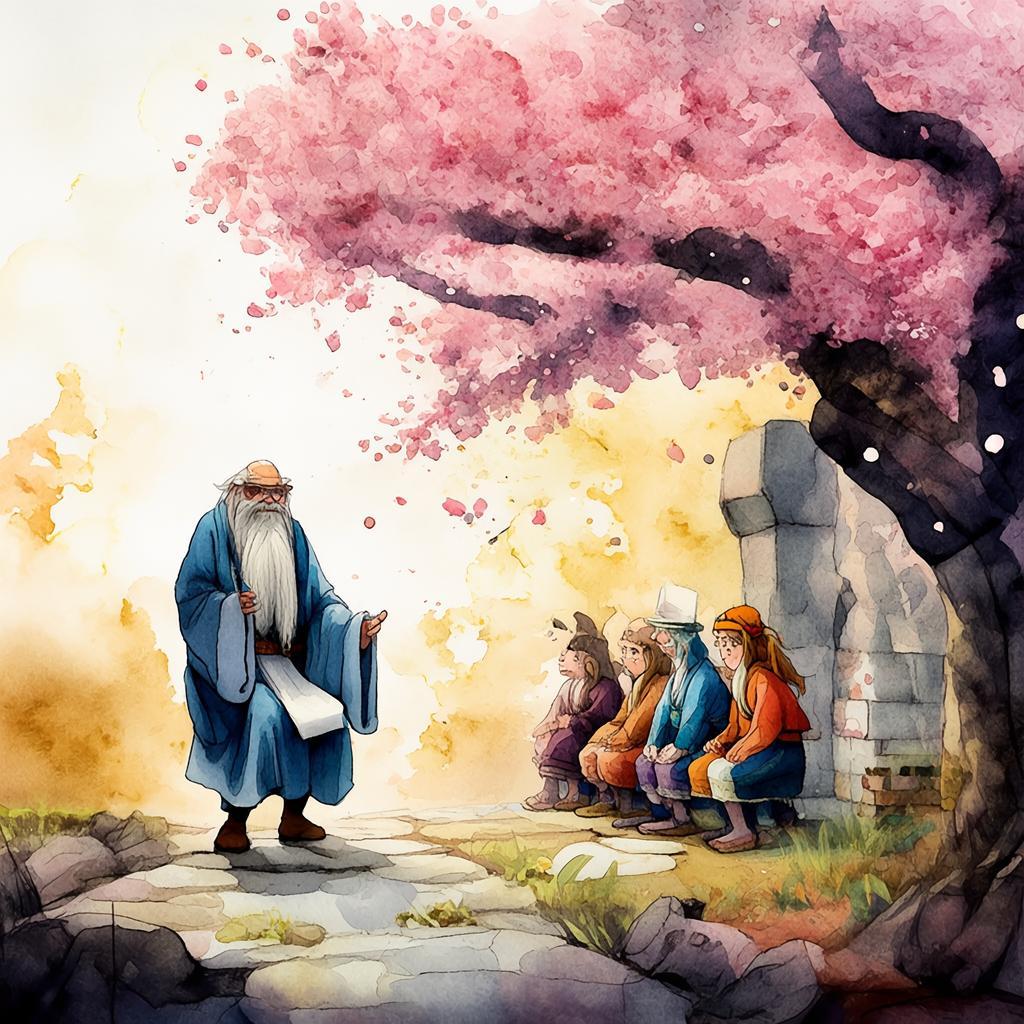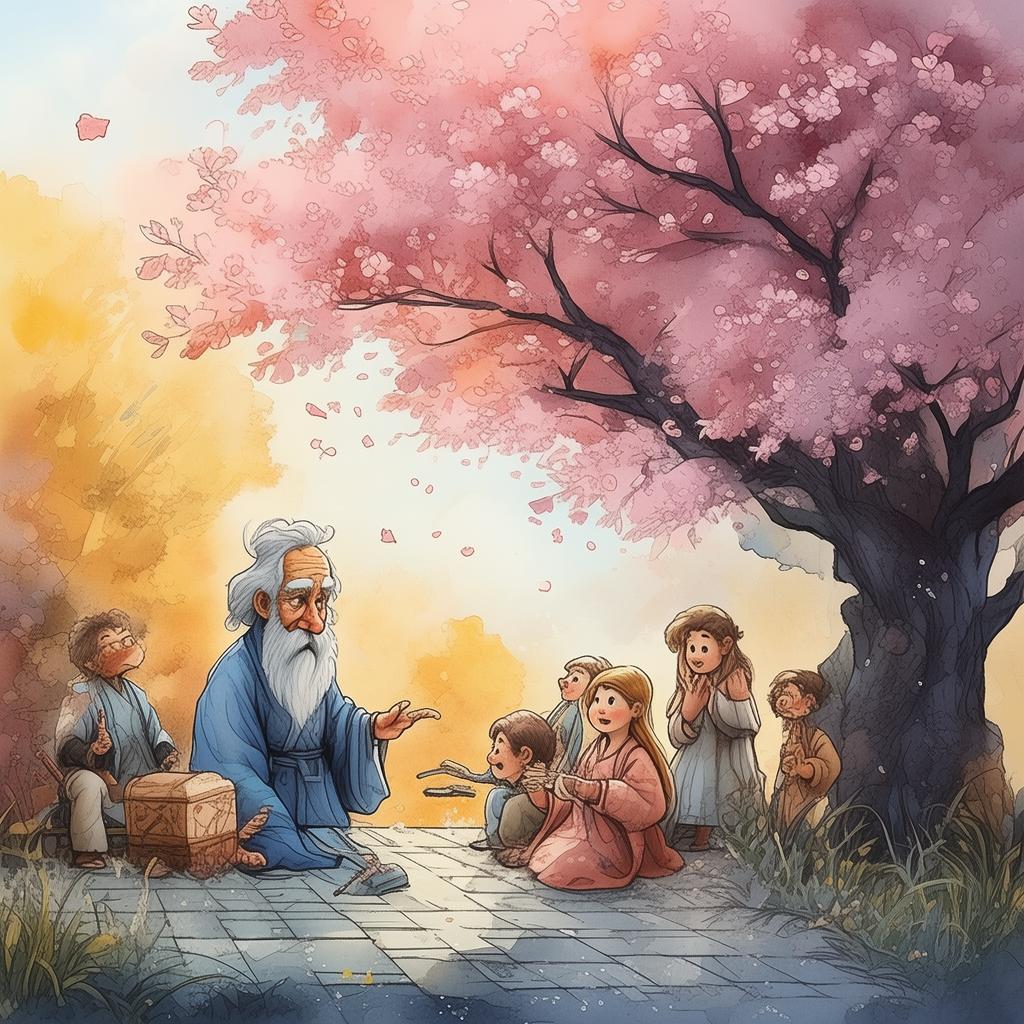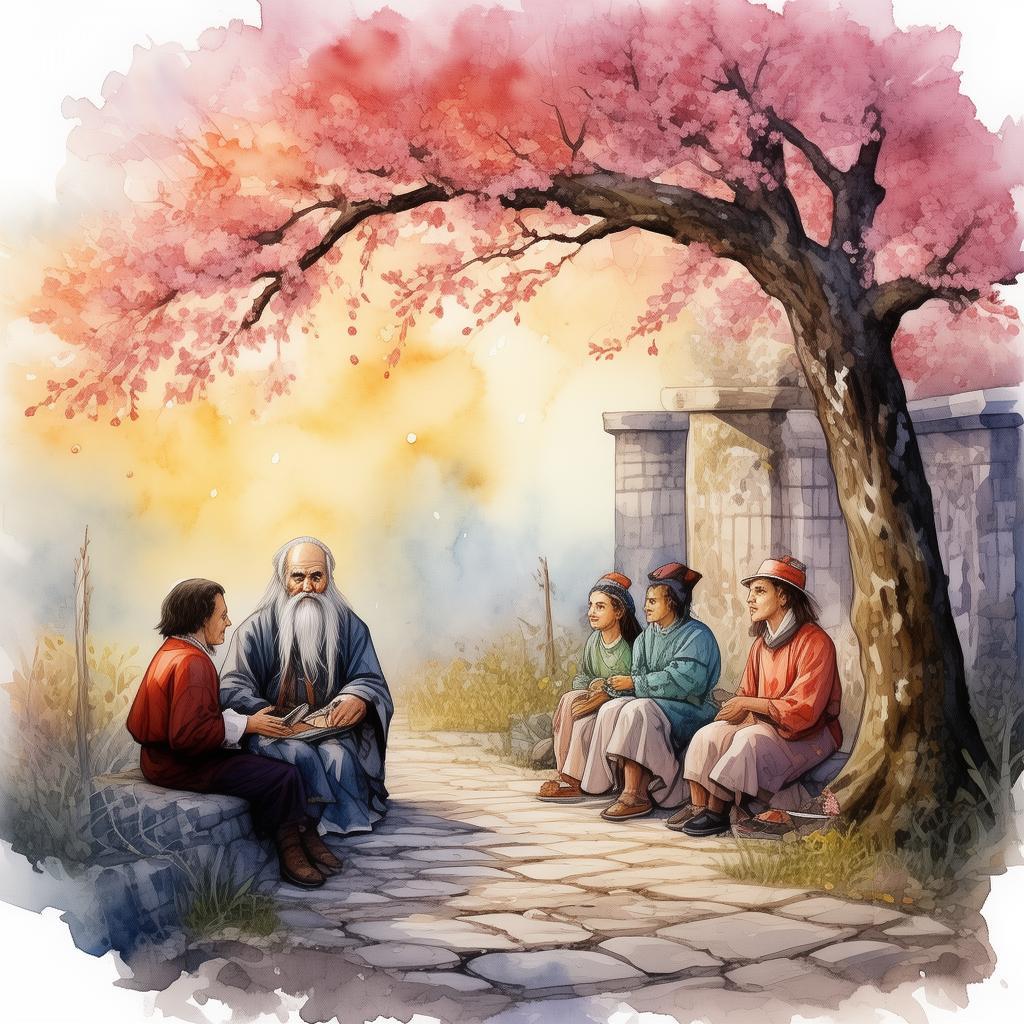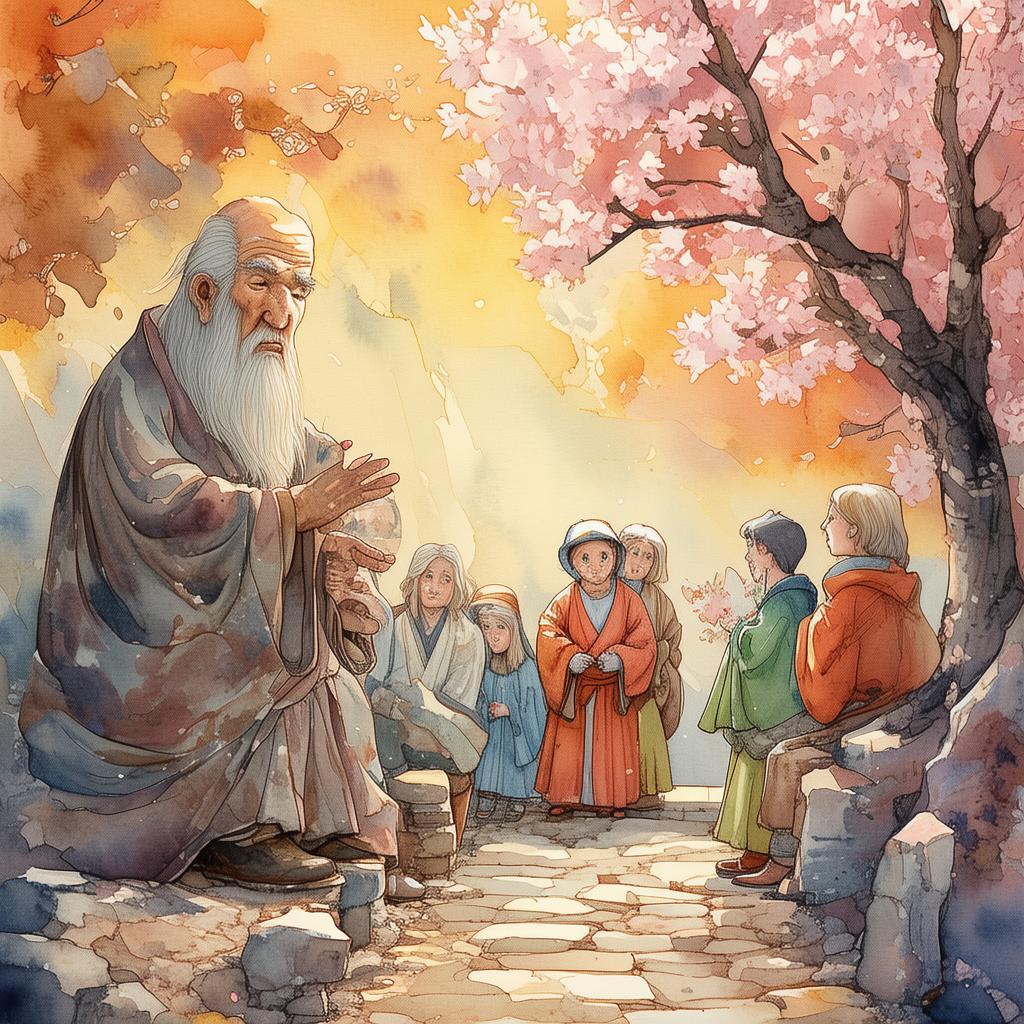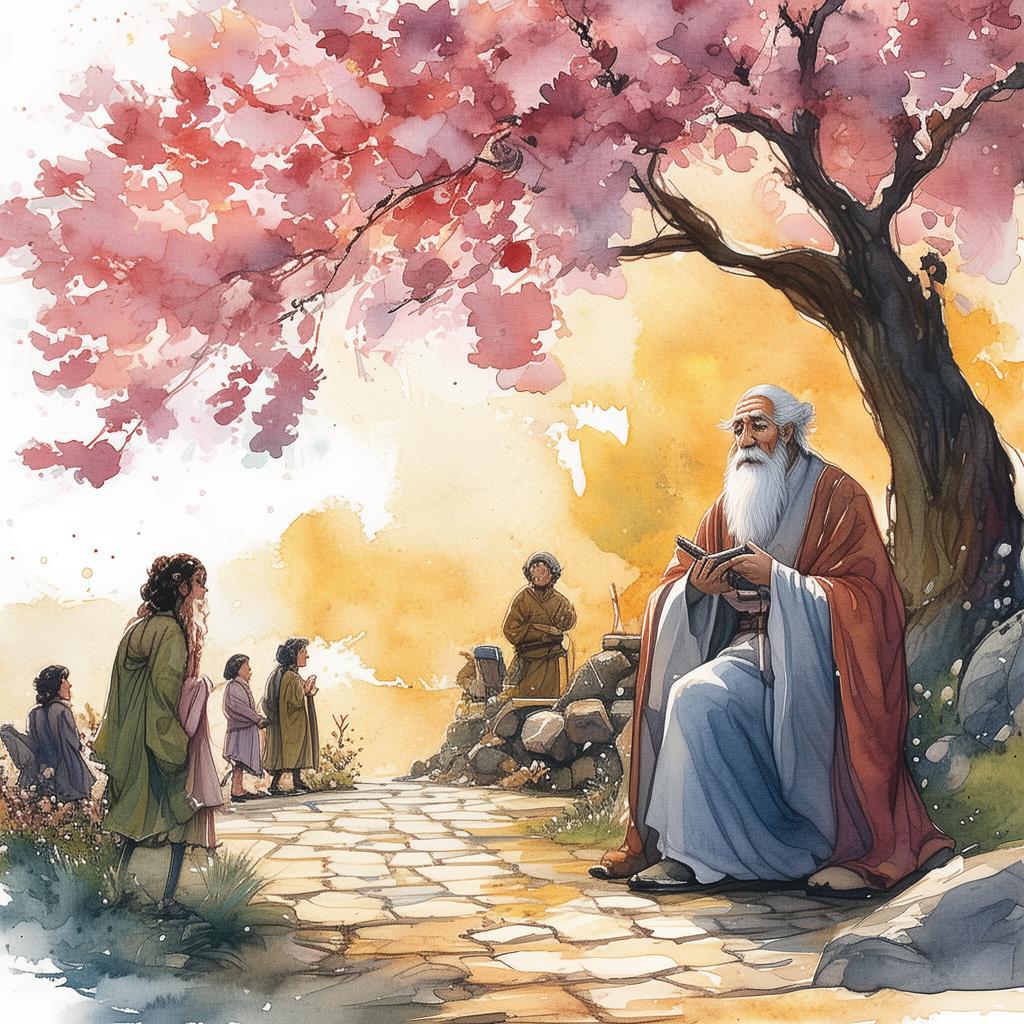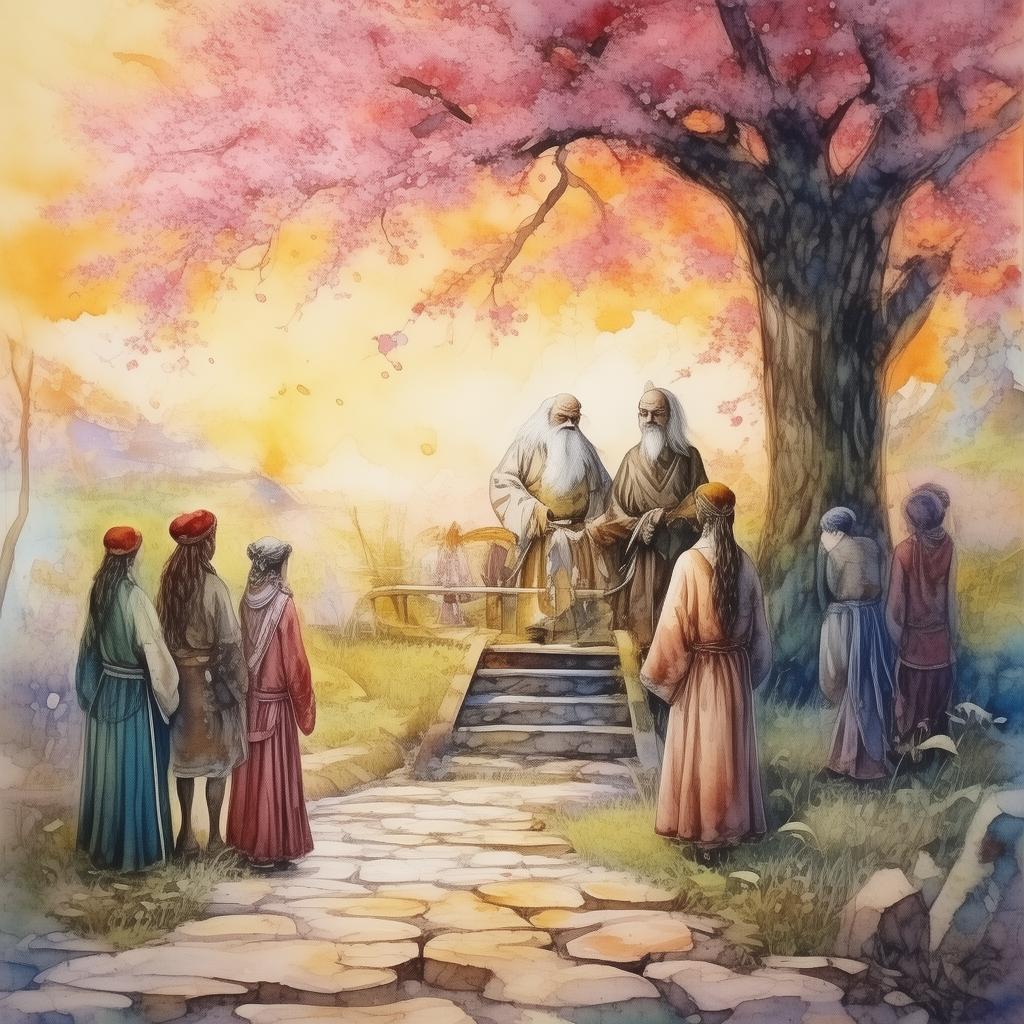Chasing Shadows: The Scholar Who Conquered Idioms' Fears
In the bustling city of Chang'an, during the Tang Dynasty, there lived a young scholar named Liu Cheng. Known for his unparalleled intellect and scholarly prowess, Liu Cheng was the envy of his peers. Yet, even the most learned individuals had their fears, and Liu Cheng's fear was a peculiar one—it was the idioms.
Idioms, those pithy phrases that packed deep meanings into a few words, were a staple of Chinese literature and conversation. Liu Cheng, though well-versed in classical texts, found himself unnerved by the hidden meanings and the potential for misunderstanding that lay within each idiom. He often spent sleepless nights, haunted by the fear that he might misinterpret an idiom in public, thereby bringing shame upon himself and his family.
One night, Liu Cheng had a peculiar dream. In his dream, he was standing before a vast, shadowy library filled with ancient scrolls. At the center of the room was a colossal tome bound in dark, shimmering leather, inscribed with the words "The Idioms' Fears." The air was thick with an eerie silence, and the shadows seemed to whisper secrets just out of earshot.
As Liu Cheng approached the tome, a voice echoed from within, "Only one who has faced and conquered their fears may open the book and unravel the mysteries of the idioms." The voice was hauntingly familiar, yet Liu Cheng could not place it.
Determined to conquer his fear, Liu Cheng awoke with a start. He knew then that this dream was a sign, a challenge from the universe. He resolved to embark on a journey to understand and ultimately defeat the idioms' fears.
His first stop was the Great Library of Chang'an, a place of endless knowledge and wisdom. Liu Cheng spent days poring over scrolls, annotating and memorizing idioms. However, he found that the more he learned, the more his fears grew. He realized that he was not just afraid of the idioms themselves, but of the potential for failure and the weight of expectation that came with his scholarly reputation.
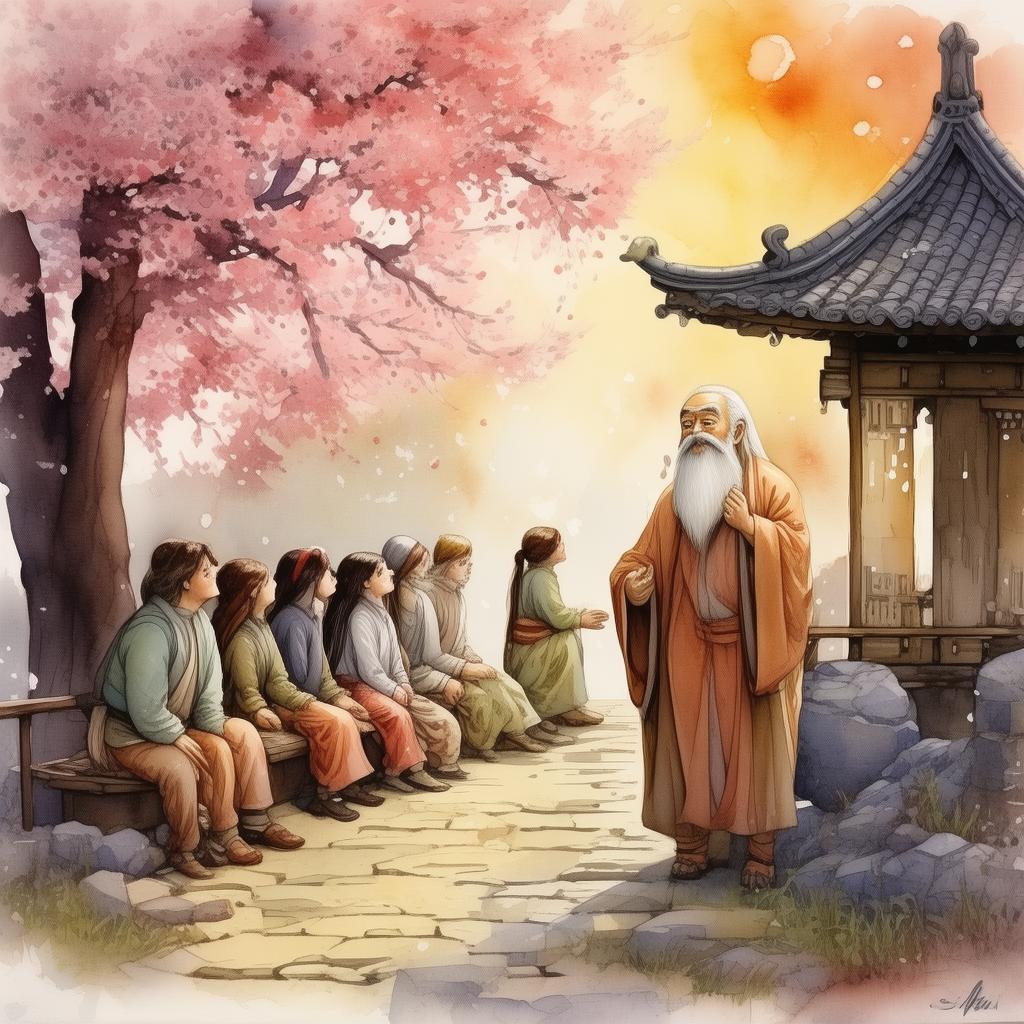
One day, as Liu Cheng was deep in thought, a wandering monk named Haihui approached him. The monk, wise and serene, noticed Liu Cheng's distress and offered words of comfort.
"Scholar," said Haihui, "the path to wisdom is often paved with fear. It is not the idioms that you should fear, but rather the ignorance that lies within you. Only by embracing the fear and seeking knowledge can you truly understand the idioms."
Liu Cheng, moved by the monk's words, decided to follow him. Haihui led him to the Temple of the Five Elements, a place of mystical practices and ancient teachings. There, Liu Cheng learned the art of mindfulness, the practice of being fully present and accepting his fears without resistance.
Days turned into weeks as Liu Cheng and Haihui traveled together. They encountered sages, warriors, and even spirits who tested Liu Cheng's knowledge of idioms. Each encounter brought Liu Cheng closer to understanding the true nature of the idioms and his own fears.
One such encounter was with an old fisherman who challenged Liu Cheng to explain the idiom "The fisherman's net is always full." Liu Cheng, at first, struggled to find a satisfactory explanation. However, as he pondered the fisherman's words, he realized that the idiom spoke not only of the fisherman's success but also of the importance of patience and perseverance.
With this newfound insight, Liu Cheng began to see the idioms not as sources of fear but as windows into the human condition. He understood that each idiom contained a lesson, a truth that could be applied to life's challenges.
The final test came when Liu Cheng stood before the tome "The Idioms' Fears" in the shadowy library of his dream. He took a deep breath and opened the book. Instead of the dark tome he had expected, he found a bright, glowing scroll. The scroll was inscribed with a single, simple character: "Faith."
Liu Cheng realized that his journey was not about defeating the idioms' fears but about having faith in his own ability to understand and apply their wisdom. With newfound confidence, he closed the book and returned to Chang'an.
Upon his return, Liu Cheng shared his experiences with his peers. He spoke of the idioms as a source of wisdom and insight, not as sources of fear. His words spread like wildfire, and soon, the scholars of Chang'an were no longer afraid of idioms but embraced them as a vital part of their intellectual journey.
And so, the scholar who once feared idioms had become a legend in his own right, known as the Scholar Who Conquered Idioms' Fears. His story became a tale of wisdom and courage, a reminder that fear can be a powerful motivator, but only if faced with courage and determination.
✨ Original Statement ✨
All articles published on this website (including but not limited to text, images, videos, and other content) are original or authorized for reposting and are protected by relevant laws. Without the explicit written permission of this website, no individual or organization may copy, modify, repost, or use the content for commercial purposes.
If you need to quote or cooperate, please contact this site for authorization. We reserve the right to pursue legal responsibility for any unauthorized use.
Hereby declared.
